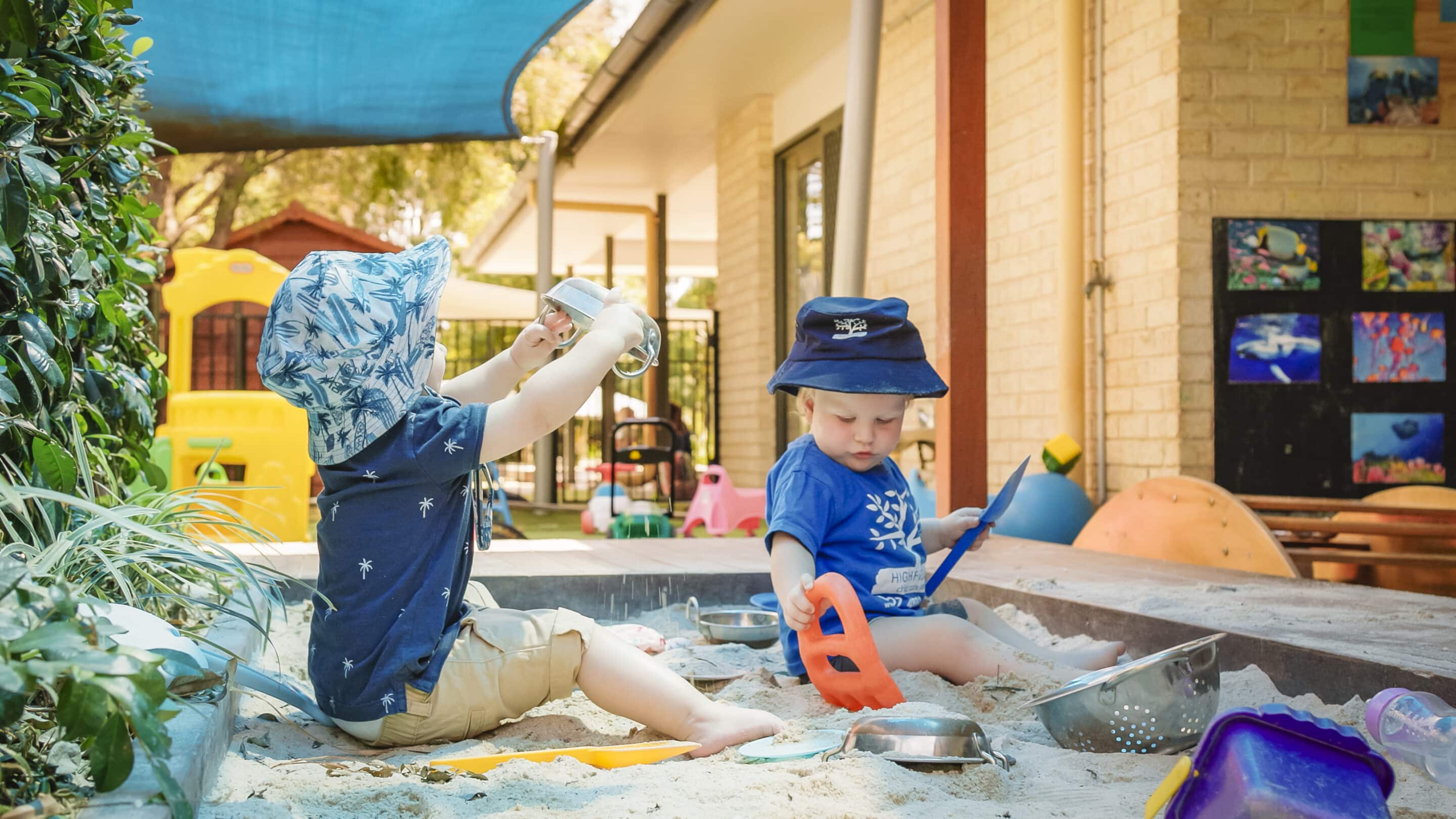1. Trust Their Inherent Capabilities
Nurturing a child’s independence starts with understanding their natural abilities. Children are naturally capable and competent learners with the ability to make choices for themselves. At Highfields Child Care Centre, our team recently introduced drinking glasses into the toddler room. Wonderfully displayed on open shelves, the glasses are accessible for children to use as they need. Operations manager, Michelle Tuffley, has complete trust in the children. “We have 18-month-olds that will go over, grab a glass, and get the educator to help them pour the water in”, says Michelle. “We trust the children enough that they’re going to hold the glass properly. We have 12 toddlers in the room – and not one of those glasses has been broken.”
2. Understand Your Child’s Cues
Children are born with an innate need to engage with their surroundings and connect with the people are them. You will see this even in babies who’ve not yet learned to talk – they will use their body language and voice to share what they want and how they feel. It is essential to understand and pay attention to your child’s engagement and disengagement cues. It shows you respect their abilities to make their own choices. “Even the simplest things, like spooning food into a baby’s mouth, are an opportunity to introduce early independence skills”, says Michelle. “The baby will indicate when they’re ready for the next mouthful – but we adults are often so focused on getting our stuff done that we’re already shoving in another spoonful.”
3. Practise Mindfulness
Crucial to encouraging a child’s independence, then, is the ability to be present and connect in a meaningful way. “You’ll have the child’s full attention if they have your full attention,” says Michelle. “It’s really about slowing down and connecting with integrity. When we do that, we show children that they’re worthy and build their self-worth.”
4. Give Choices
“Everything is adult-directed for young children – absolutely everything, from the time they wake up,” Michelle points out. It is important in their foundation years to allow “to have agency, to make simple decisions about things like what they want to wear or what they want to eat,” says Michelle. Having simple input into what they want to do each day helps set them up for success later in life.
5. Limit Options
While it is important to give children choices, aim to offer only a few choices, rather than open-ended questions. “It might be, ‘would you like to wear a dress today or pants?” suggests Michelle. “If they say pants, you can offer three options and have them choose which one.” Give them space to think while they decide, rather than standing over them.
6. Tap Into Their Interests
It is key to understand how each individual child expresses themselves creatively and how they learn best. “We need to adapt ourselves, rather than let the children adapt to us,” explains Michelle. “Our educators look at children’s strengths and interests rather than weaknesses. If we wanted to encourage a child’s independence, we would identify something that they’re interested in and then intentionally introduce that concept in a way that the child learns.”
7. Teach Self-Help Activities & Assign Age-Appropriate Chores
From a very young age, children can learn how to undertake basic self-help activities and participate in tasks around the house. For example:
- Children up to 18 months can often begin using a spoon, eat finger food, drink from a cup, help get dressed (put an arm in a sleeve, put a foot in a shoe), as well as reach for their preferred choices
- Up to 36 months, children often can feed themselves with a spoon, wash their hands with assistance, learn to use the toilet, play dress ups, and put dirty clothes in the clothes hamper when asked.
- By the time they reach three, children can play dress ups, put their shoes on (without tying laces), brush their teeth (with assistance), put rubbish in the bin and dishes in the sink.
8. Praise Their Efforts
The way adults praise children’s successes and failures can have a direct impact on a child’s development mindset, researchers at Stanford University found. But the study also found that it is important not to focus on intelligence when giving praise. Children that received recognition for their intelligence (“you must be smart”) became attached to the idea of being seen as ‘smart’ and avoided tasks where they may make mistakes. In comparison, the study showed that children who instead received praise for their efforts (“you must have worked hard”) cultivated a growth mindset, believing that intelligence was not a fixed trait but something to be developed through learning and hard work.
9. Normalise Failures
You can build and encourage resilience in childhood by teaching children that mistakes are a normal part of the learning process. For example, any breakages with the new drinking glasses in the Ashmore centre will be dealt with safely and seen as valuable learning opportunities, Michelle says. “We need to allow children to make mistakes, and be there to guide them, and say, ‘you know what, that’s okay, I make mistakes sometimes too!’”
10. Consistency Is Key
Consistency is key, especially when it comes to implementing new rituals to support a child’s developing independence. Implementing regular routines will create a feeling of security and self-sufficiency for children, allowing them to predict and understand what is happening each day. “To be consistent, you have to clear your mind and make sure you are fully present — it’s about inner preparation and outer preparation,” Michelle advises. “If you’ve said to your child, ‘this is what we’re going to be doing every day from now on’, it’s really important to follow through.”









